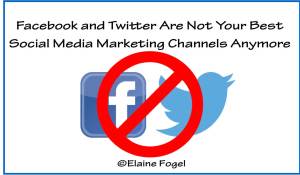brands
 For many years, advertisers thought that using sex or violent themes could influence consumer purchasing. Well, guess what? It ain’t necessarily so!
For many years, advertisers thought that using sex or violent themes could influence consumer purchasing. Well, guess what? It ain’t necessarily so!
A new study by the American Psychological Association (APA) says that violent and sexual media content may impair advertising’s effectiveness and ultimately deter purchasing. (Well, there goes the marketing neighborhood.)
We found almost no evidence that violent and sexual programs and ads increased advertising effectiveness,” said Brad J. Bushman, PhD, professor of communication and psychology at The Ohio State University, and a co-author on the study, which appeared in the journal Psychological Bulletin®. “In general, we found violent and sexual programs, and ads with violent or sexual content decreased advertising.”
 Armed with solid research, effective planning, and wise execution, today’s organizations and independent professionals can find success competing in the rapidly developing global marketplace. What follows are three tips that many professionals and organizations rely upon to expand their reach internationally.
Armed with solid research, effective planning, and wise execution, today’s organizations and independent professionals can find success competing in the rapidly developing global marketplace. What follows are three tips that many professionals and organizations rely upon to expand their reach internationally.
1. Learn What Fits and Where
Before one can evaluate the merits of expanding into global markets, individuals or organizations must first establish that what they have to offer is actually a good fit for the global marketplace in the context of cultural and economic factors. Manufacturers of luxury goods may, for example, encounter stiff sales resistance for their products in regions of the world where the culture frowns upon using wealth to differentiate or isolate themselves from other classes. Continue reading
I’ll  bet your small business or nonprofit organization spends considerable time on its Facebook page and Twitter account trying to engage new people. After all, aren’t these two social media sites the most effective in reaching prospects, customers, and donors?
bet your small business or nonprofit organization spends considerable time on its Facebook page and Twitter account trying to engage new people. After all, aren’t these two social media sites the most effective in reaching prospects, customers, and donors?
Not anymore says a recent Forrester study. “It’s clear that Facebook and Twitter don’t offer the relationships that marketing leaders crave. Yet most brands still use these sites as the centerpiece of their social efforts — thereby wasting significant financial, technological, and human resources on social networks that don’t deliver value,” says Nate Elliott of Forrester.
Now get this… “In the next 18 months… Facebook will become nothing but a repository for display ads,” Elliott predicts. Holy!!